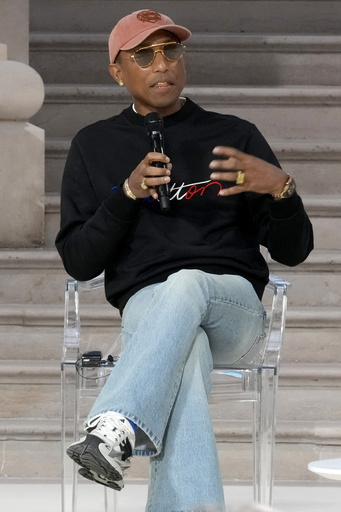
PARIS — On Tuesday, U.S. Vice President JD Vance issued a warning to global leaders and technology executives, cautioning that “excessive regulation” could hinder the burgeoning artificial intelligence (AI) sector. His remarks served as a critique of European Union efforts aimed at addressing AI risks, highlighting a growing divide among major global players regarding the future of this transformative technology.
This discourse underscores the widening chasm over AI governance, a disagreement that some argue could determine whether humanity progresses or faces significant setbacks. The United States, particularly under the previous administration, advocated for a mostly hands-off approach to foster innovation, in stark contrast to Europe’s more stringent regulatory measures aimed at ensuring safety and compliance. Meanwhile, China is advancing its AI capabilities rapidly through state-supported enterprises, competing for a leading role on the global stage.
The U.S. notably declined to partake in a global commitment document signed by over 60 nations, including China, which envisioned responsible AI development. This was highlighted during Vance’s introduction at the summit, where he delivered his inaugural major policy address since assuming the vice presidency. He characterized AI as a pivotal economic juncture, likening its potential impact to the advent of the steam engine. However, he warned that excessive regulatory measures could dissuade innovators from taking necessary risks, threatening to stifle advancement.
At 40, Vance is using this AI summit, along with a security conference in Munich planned later in the week, to present a vigorous new approach to diplomacy reflective of the former administration’s style. He affirmed that the Trump administration will ensure that AI systems developed within the U.S. are devoid of ideological bias and emphasized the nation’s commitment to upholding its citizens’ rights to free speech.
The international clause to promote AI was signed by many countries, including some European nations, outlining commitments to improve AI accessibility to bridge digital gaps. It also promised to develop AI that is open, inclusive, safe, secure, and trustworthy while prioritizing sustainability and human rights. Surprisingly, China, often scrutinized for its human rights practices, was among the signatories, further accentuating the distinction between the U.S. and other nations in the global competition for AI leadership.
At the summit, Vance criticized foreign governments for their tightening measures on American tech companies, highlighting the growing divergence between Washington and its European counterparts on how to govern AI. Ursula von der Leyen, President of the European Commission, emphasized the necessity of building public trust in AI and introduced guidelines to standardize EU regulations while recognizing the need to alleviate bureaucratic burdens. She also unveiled the “InvestAI” initiative, attaining €200 billion in AI investments within Europe, including €20 billion earmarked for AI gigafactories.
This summit revealed a significant global tussle over AI; Europe aims for strict oversight and public funding, while China aggressively expands its state-driven AI agenda. The U.S. is advancing towards a free-market policy, with French President Emmanuel Macron promoting Europe as a balanced alternative—an approach that integrates regulation with innovation and doesn’t rely heavily on U.S. or Chinese dominance. He reiterated a call for collective global AI rules, asserting European engagement in the competition.
On the contrary, China is advocating simultaneous control domestically while pushing for open-source AI internationally. Chinese Vice Premier Zhang Guoqing expressed Beijing’s desire to establish global AI regulations, even as Chinese officials criticized Western limits on AI access, marking a complex balancing act that faces skepticism from critics who view it as a method for proliferating China’s influence.
In light of a brewing AI arms race, the U.S. is also experiencing a clash with Europe. Vice President Vance, a known critic of European tech legislation, hinted at a reevaluation of U.S. commitments to NATO if European nations impose further restrictions on platforms like Elon Musk’s X. His discussions in Paris also encompassed issues surrounding Ukraine, the evolving role of AI in global dynamics, and U.S.-China relations.
As nations ponder the regulation of AI, concerns about its potential threats surfaced during the summit, particularly regarding its implications in defense and warfare. Admiral Pierre Vandier, NATO’s commander overseeing modernization efforts, noted the necessity of finding ways to regulate AI to maintain control. Concurrently, a global initiative called “Current AI” is being developed to foster public-private partnerships aimed at large-scale AI projects for societal benefit, presenting an avenue to balance the influence of private companies in the AI sector, although its acceptance from the U.S. remains uncertain.
In the private sector, tensions are escalating as well. A group of investors led by Musk, now in charge of Trump’s Department of Government Efficiency, has proposed a $97.4 billion buyout for the organization behind OpenAI, which was swiftly rejected by OpenAI CEO Sam Altman during the Paris summit. Addressing the issue of AI regulation, Altman argued against imposing further restrictions in Europe, asserting that decisions should stem from public consensus on balancing AI’s potential and its risks.

